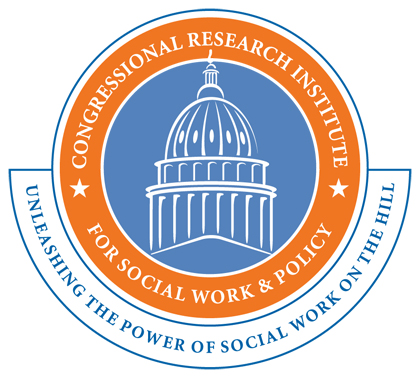One of the beauties of social work is its ability to follow the need. Social workers have been leaders in the practice of responding to traumatic events. Now we are witnessing the profession’s ability to adapt and marshal its resources to meet an emerging challenge by expanding the practice of working with military personnel and their families. The subject of this work was featured in a congressional briefing on November 7, 2012 sponsored by the National Association of Social Work in conjunction with the Congressional Social Work Caucus. Among the highlights of that briefing was evidence of the shift in
thinking by military leadership about how soldiers and their families should address their mental health needs. Treating mental disorders has always been a contentious subject for military brass and personnel. Once diagnosed with a mental problem, chances for a soldier’s advancement and promotion are fall precipitously. Unlike physical injuries and loss of limbs, mental wounds are invisible and often questioned and, until recently, mental illness was a subject the military brass was reluctant to address. However, medical advances have allowed more soldiers to return from the battlefield having survived what would have been fatal wounds. These soldiers return home not only with battered bodies, they have battered minds.
The VA estimates that 11 to 20 percent of veterans returning from deployment in Iraq and Afghanistan suffer from post-traumatic stress disorder (PTSD). It is estimated that 10 percent of Gulf War veterans and as many as 30 percent of Vietnam veterans suffer from PTSD. Fortunately, a greater percentage of recent veterans are seeking help for mental health problems. About 46 percent of the 1 million veterans returning between 2002 and 2009 sought VA services and, of those, 48 percent were diagnosed with mental problems. Yet, many veterans who need mental health services did not seek treatment.
Problems stemming from mental problems are many. According to the Department of Veterans Affairs, 22 veterans commit suicide every day. Among these, older men aged 50 to 59, are more likely to take their lives. These older men are years beyond their discharge and eligibility for mental health services. Rates of intimate partner violence among veterans are estimated to range between 13.5 percent and 58 percent and at least three times the rate among the general population. Until recently little attention was paid to the mental well being of children of deployed troops, a mounting problem with the increase in women being deployed in war zones.
As awareness grows about the importance of addressing mental health problems among military personnel and their families, the military is increasingly relying on the expertise of social workers. During the briefing, it was reported that the VA trains 1,000 social workers annually and employs more than 10,000 social workers making it the largest single employer of social workers in the United States. Forty-one percent of social workers at the VA were hired within the last four years. The Council on Social Work Education (CSWE) reported an increase in military social work programs with 14 accredited programs with a military social work field of practice and a total of 29 programs with some military related content. There were 623 social work students in military-related field placements during the fall of 2012. These numbers are expected to grow.
On the policy side, H.R. 1725, the Veterans Mental Health Accessibility Act was introduced earlier this year by Rep. Matt Cartwright (D-PA17) and now has 66 co-sponsors. If enacted, the bill would provide open-ended access to veterans in need of mental health services
without proof needed that the mental disorder was induced by service-related activity. Presently, service-related mental disorders must be diagnosed within five years after discharge. This bill would provide universal mental health services to veterans.
I believe that the men and women who put their lives on the line to protect the freedom and liberty that we often take for granted in this country deserve unlimited health and mental health benefits whatever the cost. I think it is a shame that so many veterans are denied adequate healthcare in this country. I have a personal story about this and I am certain that there are hundreds of thousands of others who also have had challenges getting service for their loved ones. This should not be.
I am encouraged that many of the co-sponsors of H.R. 1725 are social workers or members of the Congressional Social Work Caucus. This is legislation we should support. Social workers are the largest providers of mental health services in this nation. Providing adequate mental health services for military personnel and their families should be one of our top priorities.
Written by Dr. Charles E. Lewis Jr.
President of The Congressional Research Institute for Social Work and Policy
Twitter: @CharlesELewisJr.
Email: celewisjr@gmail.com
Dr. Charles E. Lewis, Jr. is President of The Congressional Research Institute for Social Work and Policy. He has served as deputy chief of staff and communications director for former Congressman Edolphus “Ed” Towns and was the staff coordinator for the Congressional Social Work Caucus. He was a full-time faculty member at Howard University School of Social Work prior to joining Rep. Towns’ staff and now is an adjunct associate professor. As staff coordinator for the Social Work Caucus, Dr. Lewis helped to plan and to coordinate numerous briefings and events on the Hill and in the 10th Congressional District in Brooklyn, New York.
Originally Posted at http://crispinc.org/?p=664
Our authors want to hear from you! Click to leave a comment
Related Posts







